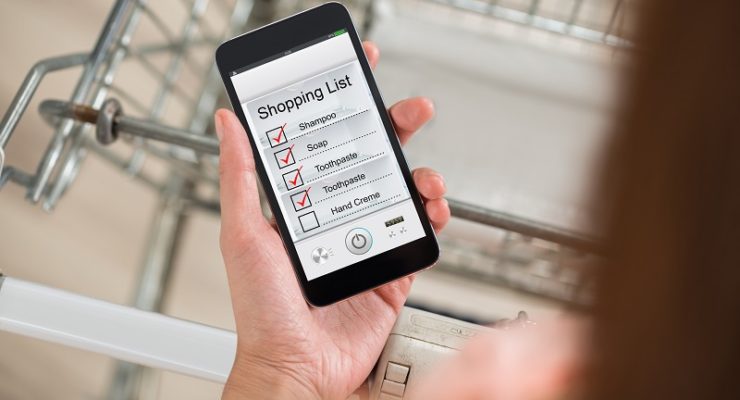If your daily routine includes a scroll through your favorite social media feed, you’re not alone: According to pewresearch.org, approximately 70 percent of U.S. adults use YouTube and Facebook, 37 percent use Pinterest, and more than 20 percent use Linkedin, Snapchat and/or Twitter. The same source reports that nearly 75 percent of Facebook users visit the site every day, and the majority of Snapchat and Instagram users do the same.
These stats aren’t surprising, given that social media can be a great source of information, inspiration and connection. But research suggests that there are downsides to these popular online platforms. In fact, a growing body of evidence suggests that the more time people spend on social media, the worse they feel about themselves.
10 Ways Your Smartphone Can Help You Lose Weight
Read More 
But why? As it turns out, people are using social media for more than just socializing. They’re also using it to draw comparisons between themselves and others which, in some cases, is wreaking havoc on their self-esteem.
The Social Media, Self-Esteem Connection

According to a study published in Psychology of Popular Media Culture, participants use social media to make what they call “upward social comparisons”–they compare themselves to others they perceive to be better off. The result? They end up feeling worse about themselves.
Multiple studies suggest that social media users are comparing how they look to others as well. Research out of the Florida House Experience, a mental health and addiction treatment facility, reveals that women’s opinions of their bodies are more heavily influenced by social media than by TV, movies, even their significant others.
Unfortunately, this is leaving many woman dissatisfied. Research out of York University in Toronto suggests that young women felt worse about their own appearance after viewing the social media pages of someone they perceived to be more attractive than themselves.
The “Highlight Reel Effect”

One of the most interesting findings to come out of recent research on social platforms and self-esteem is that users report feeling the worst when comparing themselves to distant peers–those they are connected to online but have little to no interaction with outside the social media tunnel.
Researchers attribute this to what’s been deemed the “highlight reel effect.” Social media, they say, enables users to share only the best aspects of their lives. And unlike family and close friends, with whom users interact outside of the online world, distant peers can hide the negative or imperfect aspects of their lives and choose what to share–perfect images of beautiful vacations, toned bodies, stylish clothes, countless friends, etc.
This theory is supported by the York University study, which revealed that although scrolling through images of celebrities and distant peers made users feel negatively about themselves, scrolling through family member’s feeds did not. Given that users are likely close enough to family members to have a bigger picture view than what they see on social media, this makes sense.
The Stress Test: How Much Is Too Much?
Read More 
The Takeaway

Before you close all of your social media accounts, know this: It isn’t all doom and gloom. How you use social media can have a sizable impact on your experience. Here are some tips for making sure your experience is a positive one:
1. Pick your friends and followers wisely.
By following only close friends and family members, you’ll keep the social connection element without falling victim to the Highlight Reel Effect. And if you do choose to follow distant acquaintances or celebrities, keep in mind that what they are sharing online is only a small piece of the bigger, real life picture.
2. Be choosy about inspirational accounts.
In a study out of the University of West England, Bristol, 160 female undergrads viewed either #fitspo images (pictures of attractive people exercising), self compassion quotes (like “You’re perfect just the way you are”), or a mix of both, from real accounts on Instagram. Those who viewed only #fitspo images scored lower on self-compassion; those who viewed the compassionate quotes were nicer to themselves and felt better about their bodies.
Another study of 195 young women who were shown either body-positive content, photos showing thin women in bikinis or fitness gear, or neutral images of nature, the women viewing the body-positive content reported feeling more satisfied with their own bodies.
These findings suggest that by being selective about the content you follow on social, you can create a positive environment that’s actually great for your self-esteem.
3. Take a step back.
Although multiple studies have established a correlation between social platform usage and low self-esteem, it’s something of a “chicken or the egg” situation. While some researchers theorize that engaging with social media can lead users to have lower self-esteem, others speculate that people who already have low self-esteem are most drawn to social media since they can obtain approval and positive reinforcement from others via likes, comments and shares.
Understanding why and how you use social media may help you shape a more positive experience. If scrolling through your feed makes you feel worse about yourself, your time might be better spent engaging in a different hobby–one that makes you feel good and reinforces the things you like about yourself.
On the other hand, if a daily scroll through your feed brings you joy and makes you feel more positive, there is no reason to cut social media out of your life.
Looking for some positivity? Check out Nutrisystem’s Facebook, Instagram, Twitter and Pinterest pages!
The post Social Media and Self-Esteem: What You Need to Know appeared first on The Leaf.
from The Leaf https://ift.tt/2Sq4UY0




